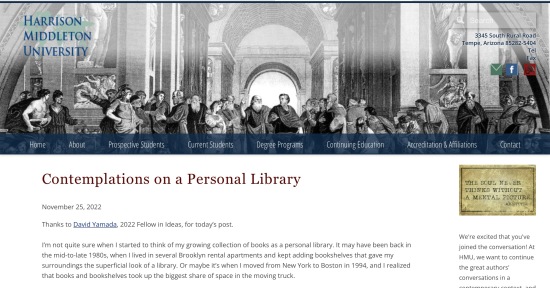
Briefing MA legislators, staffers, and interns on the Healthy Workplace Bill
Dear readers, with summer now officially here in Boston, I’m working away at various projects, initiatives, and events. In addition to writing a law review article, here is a sampling of what has been keeping me busy and drawing my attention during recent months and heading into summer:
Legislative briefing on MA Healthy Workplace Bill
Last Tuesday, we had a very successful briefing session on the Massachusetts Healthy Workplace Bill (Senate No. 1072, link here), with a full room of legislators, legislative staffers, and interns joining us at the State House. Jim Redmond, legislative agent for SEIU-NAGE, facilitated the briefing. Our lead sponsor, Senator Paul Feeney, spoke about the need for the HWB, and I gave a short presentation about the legal and policy mechanics that have informed my drafting of the bill. We had time for Q&A, which included added remarks by former SEIU president Greg Sorozan, a key leader behind labor efforts to address workplace bullying.
This coming Tuesday, June 25, the legislature’s Joint Committee on Labor and Workforce Development will hold a hearing on labor-related bills, including public testimony on the HWB (go here for info). We’ll be there in full force for that, as well.
Medium highlights the Healthy Workplace Bill campaign
We continue to advocate for workplace anti-bullying legislation on a national basis. Recently, for a piece in Medium titled “How to Outlaw the Office Bully” (link here), I shared this observation with writer Leigh Ann Carey:
“We are benefitting from a ripple effect from the #MeToo movement,” Yamada says. “The media headlines start with sexual harassment, but as you read deeper into the story you find out there’s a lot of generic bullying. These behaviors don’t occur in a vacuum. They hang together. Shouldn’t we be free of all this stuff by now?”

A Rome conference
A recurring educational highlight for me is the biennial International Congress on Law and Mental Health, sponsored by the International Academy for Law and Mental Health (IALMH). Thanks to the good graces of the IALMH, our International Society for Therapeutic Jurisprudence organizes a dedicated stream of panels specifically on therapeutic jurisprudence topics. The conference is a welcomed opportunity to share some of my own work and to attend panels featuring colleagues from around the world.
The next International Congress is scheduled for this July in Rome. I’ve organized two panels for the conference, both of which I’ll share more details later:
- A panel on “Bullying, Mobbing, and Harassment: Psychological Trauma and Civil Litigation.” I’ll be talking about the concept of “trauma points” in employment litigation, highlighting (1) the many points at which a plaintiff in an employment lawsuit must retell the narrative of an abusive work situation, leading to re-traumatization; and (2) the traumatizing nature of litigation itself, as a legal process. I’ll be building my talk around a prototypical racial harassment claim, drawn from real-life cases.
- A panel on “Legislative Scholarship, Design, Advocacy, and Outcomes.” I’ll be examining how therapeutic jurisprudence principles should be applied to the development of public policy, referencing — among other things — the U.S. push for workplace anti-bullying legislation.
I’ve included in my travel schedule a few extra days for sightseeing, as I’ve never been to Rome and look forward to exploring it. But seriously, the conference is a draw in and of itself, as every time I come away from it enriched by the research, insights, and ideas offered by so many of my colleagues. It’s an intellectual treat, with real-world applications.

Blog planning
I’ve never been very systematic about planning entries to MTW, but I’d like to become a bit more focused in the future. Also, with some 1,700 pieces posted here since late 2008, and a lot of other folks entering the social media fray on topics such as workplace bullying, I’d like to spend more time updating past pieces and sharing relevant commentaries from other sites. This summer I’ll be implementing a monthly blogging schedule that looks something like this:
- A new and original post about workplace bullying, mobbing, and abuse;
- A post that collects and shares my revisions of, and updates to, some of the 1,700+ articles previously posted here;
- A post that collects and links to a variety of articles and resources relevant to work, workers, and workplaces, as well as broader, related topics of psychology, economics, and public affairs;
- A post on miscellaneous topics relevant to this blog.
I’m also going to consider ways in which educators might better access and use the material that I’ve posted here. This idea was planted by a review of this blog discussed below.
Finally, I’m posting more content to my new Facebook Page, especially links to interesting pieces and to relevant past blog posts. If you’re on Facebook, you may receive new postings by “liking” or “following” this link.
MTW receives positive review from educational resources site
MERLOT.org, a popular educational resources site devoted to sharing online materials that can be used for classroom purposes, has given Minding the Workplace a very positive peer review (link here). This is especially gratifying in view of the fact that MTW has not been necessarily designed for classroom use. Nevertheless, the reviewer saw the potential usefulness of MTW for classroom purposes. Here’s a snippet of that review:
The blog underscores workplace issues of enormous contemporary significance (e.g., diversity, bullying, toxic cultures) and provides a perspective that can deepen students’ understanding. The author of the blog is an expert in the subjects that the blog addresses. The blog is exceedingly well-written, well-informed, and professionally presented. Entries link out to a variety of newspapers and periodicals. The blog contains links to key organizations and scholarly articles that address workplace bullying, employee dignity, and employment law.
The reviewer concluded that MTW is an “excellent resource for faculty and students who have an academic or professional interest in issues and challenges related to workplace culture.”















